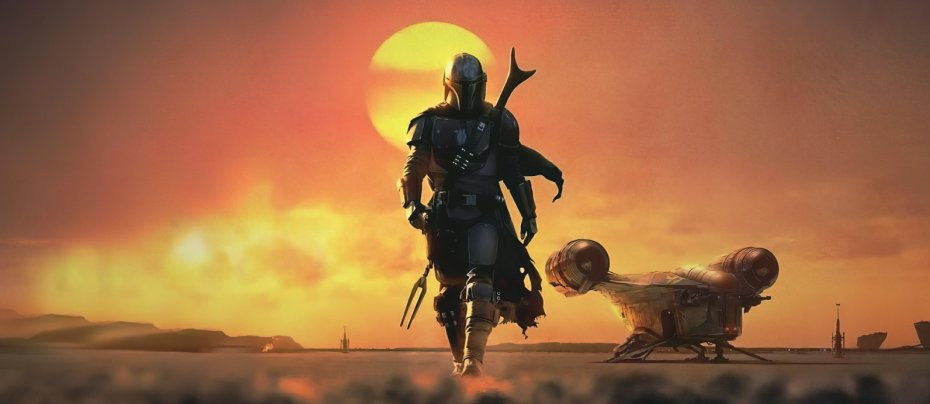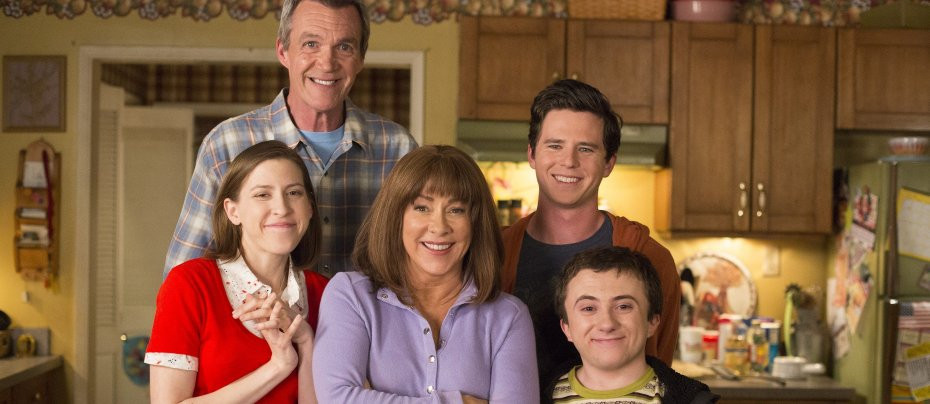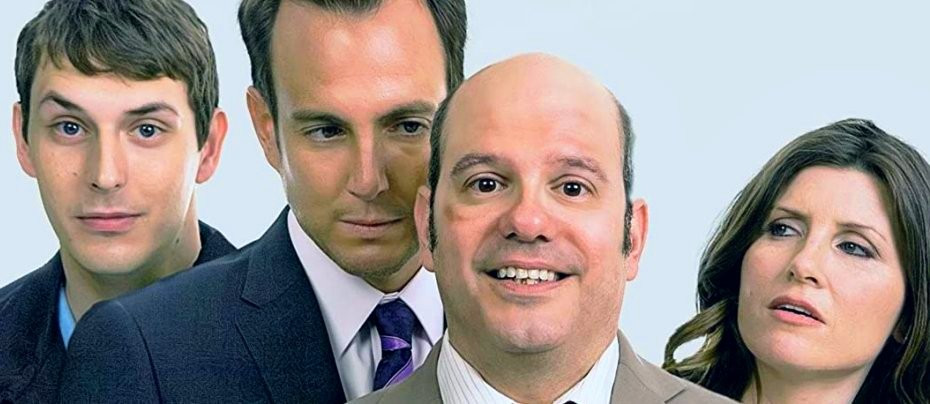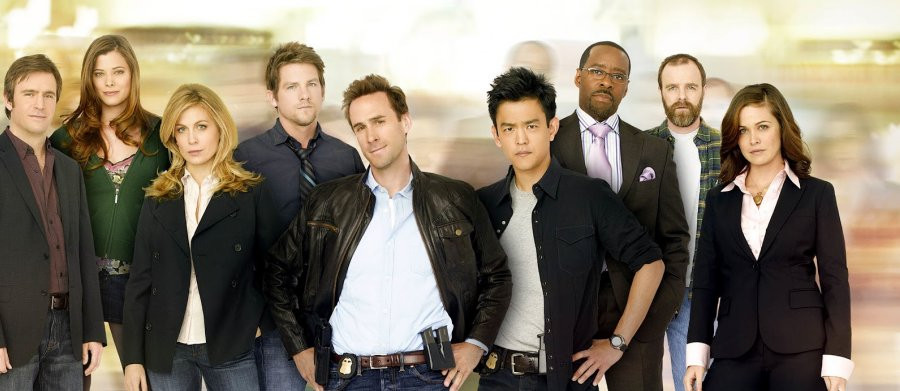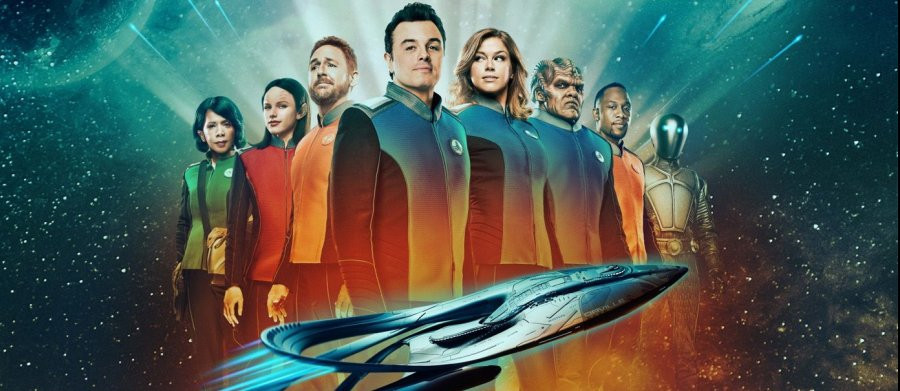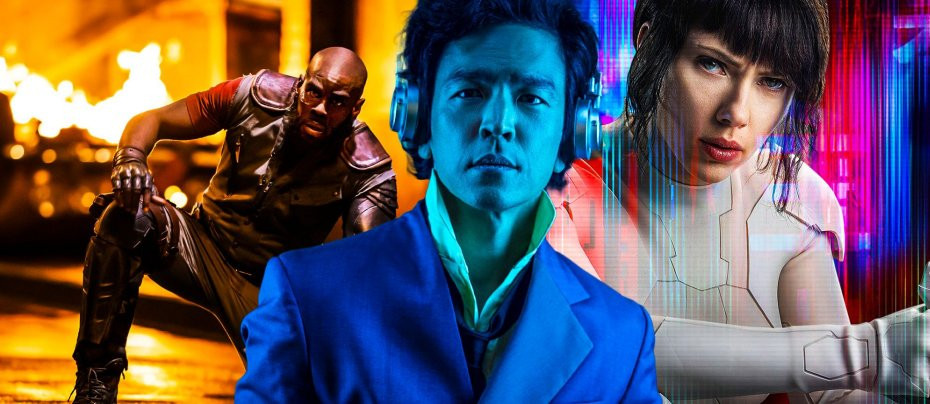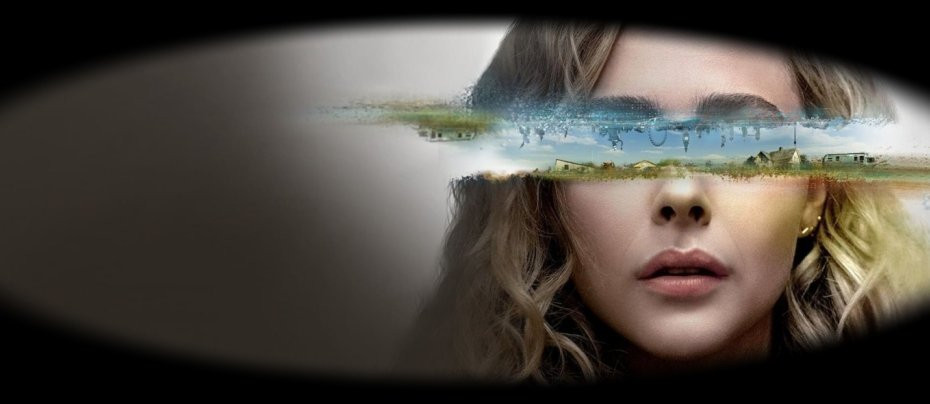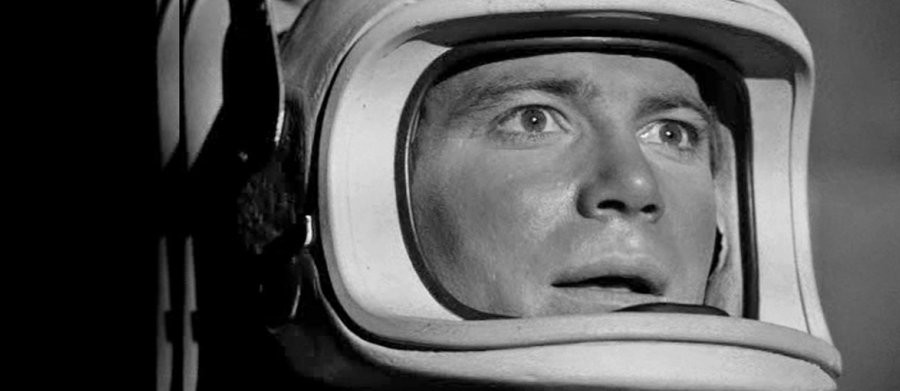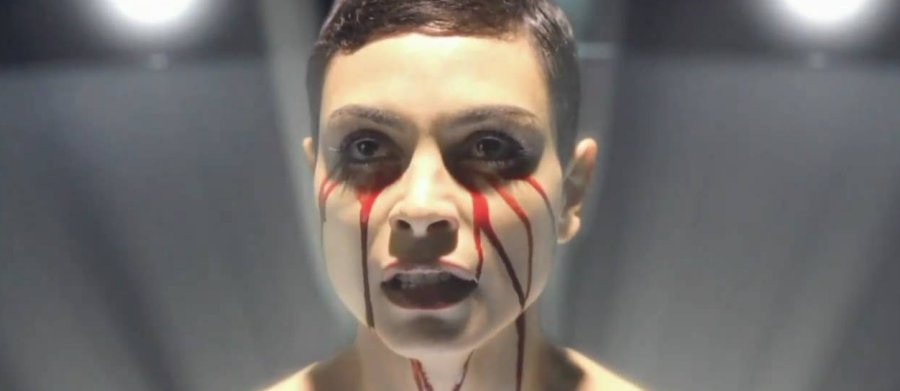
V (reboot)
2009 - United StatesReview: John Winterson Richards
In 1983, V, a "miniseries" about maneating lizards from Outer Space disguised as Nazis - which was a lot better than it just sounded - was a surprise hit on both sides of the Atlantic. This success was followed up by a short lived attempt to exploit it in the form of an episodic series, which lasted only a single season. Although it was not well plotted, the real problem with V: the Series was that it lacked the sense of urgency and tension of the "miniseries" format.
Nevertheless, the 'V' franchise as a whole was remembered quite fondly by many and became something of a "cult" item, especially when more sensible decades began to look back rather nostalgically on the excesses of 1980s style. Some also recalled that the show had raised a number of storylines and issues that it had never had time to explore properly. As soon as the "reboot" was invented, 'V' was an obvious candidate.
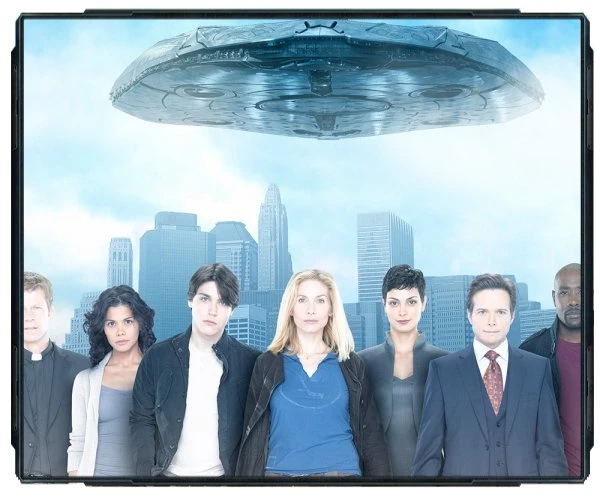
The 2009 show is indeed a "reboot" not a "remake." This is not simply the same basic plot as 1983 except without the big hair and the glowing uniforms. This is new 'V' for a new generation. The original's clear parallels with National Socialism might seem heavy handed to younger people who are, curiously, more sensitive about it than their parents and grandparents. They might also be uncomfortable with the moral certainties that characterised both sides in the Cold War. In the 21st Century we are more aware of the insidious nature of power and influence.
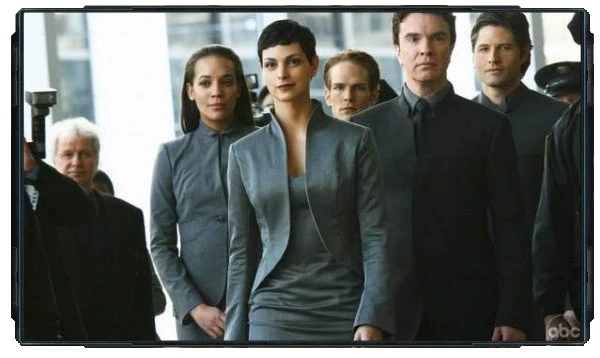
This is reflected very cleverly in the new 'V.' The aliens do not simply overawe Earth with their superior technology. They manipulate the existing human hierarchies - political, media, even religious. The aliens act like human influencers, using the most advanced "soft power" techniques. They offer cures for diseases and cheap power. They exploit the human desire to want to believe in their benevolence.
The "Visitors," as they are called, were just as adept at using the latest political and media tools that were available back in the ominous year of 1984. It is therefore quite frightening to compare the two and see how the potential for manipulation has increased so dramatically since then. It may be that Orwell was not wrong about 1984, just a bit early.
As if that was not sufficient advantage, the 2009 writers gave their Visitors an additional asset that their predecessors had not given theirs in the form of deep cover secret agents who had been infiltrating Earth for many years ahead of their apparently sudden public "first contact." The net effect of this is that the new Visitors' control of Earth is not quite so overt but it is all the deeper and more pervasive for being concealed.
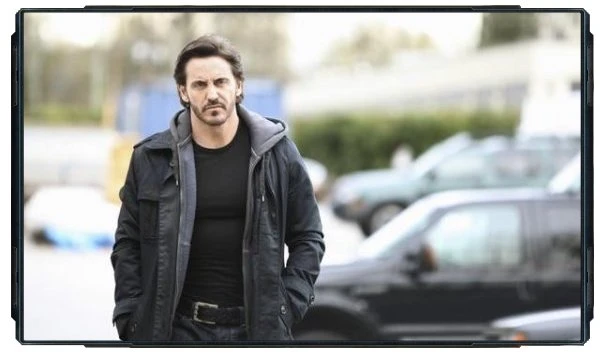
Resistance is therefore slower to get off the ground. The threat is not so obvious. The early resistors look like fanatics, little better than terrorists. A more reasonable leader eventually takes over in the form of FBI Agent Erica Evans, played by Elizabeth Mitchell.
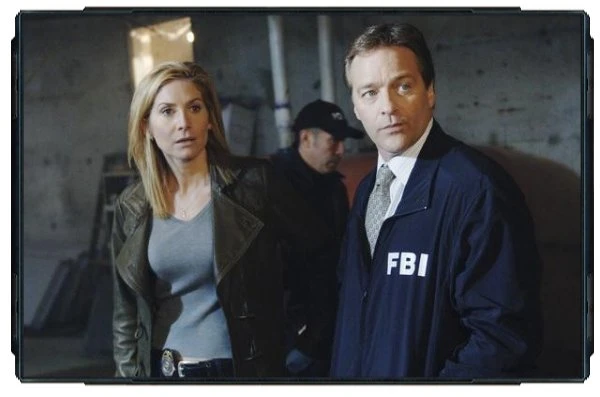
Like in 1983, the Resistance, known unflatteringly as the "Fifth Column," has a militant priest, Jack Landry (Joel Gretsch), except this time he is a handsome young priest who is also a war veteran. In any case, he is soon defrocked, since it turns out that the Vatican is in thrall to the lizards from Outer Space - a line that will surely bring joy to conspiracy theorists everywhere.
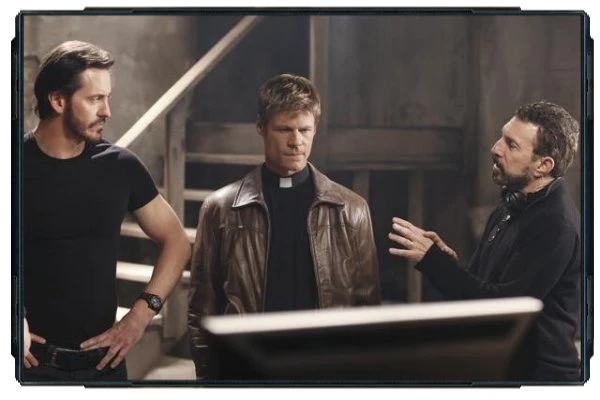
Also like in 1983, the Resistance has a hardened mercenary, the equivalent of Michael Ironside's unforgettable Ham Tyler, former SAS trooper Kyle Hobbes, played by Charles Mesure, an Anglo-Australian actor who made a strong impression in Xena Warrior Princess.
Erica also has the occasional support of Ryan Nichols (Morris Chestnut), who is in fact one of those deep cover Visitors whose years on Earth have left him with conflicted loyalties, among other complications. Overall, the Fifth Column were a far more credible bunch than the 1980s Resistance, and there was a lot of potential for interesting conflicts and relationships between them. Sadly, these were never given time to develop as they might have done.
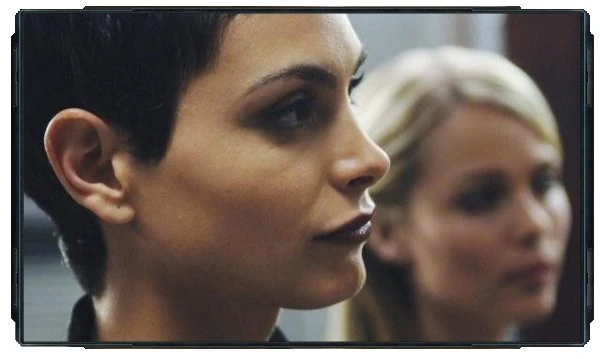
In any case, as in 1983, the most watchable character was on the other side. This is Anna, the Visitors' outwardly poised and serene High Commander, played by Morena Baccarin from Firefly and Homeland. Where Jane Badler's memorable Diana in 1983 was an ambitious subordinate, Anna is definitely in charge. More than that, she is a queen in the biological sense of a female capable of giving birth to numerous offspring. This greater emphasis on the distinction between humans and Visitors as species is one of the improvements in the new version. It is emphasised in a mating scene that becomes quite horrific.

It is a nice touch that Badler turns up as Anna's mother, who also happens to be called Diana, but is a completely unrelated character, since this is a "reboot" not a sequel. Marc Singer, who played a leading figure in the 1980s Resistance, also turns up in a similar role.

It is fair to say that the 1983 'V' had a definite leftward slant to its writing, which is hardly surprising given that the initial concept was based on a novel by Sinclair Lewis. It is therefore very intriguing that some on the left criticised the 2009 version for an alleged bias in the other direction.
It was said that the Visitors' use of trite slogans, their promise of healthcare and clean energy, their easy access to the hierarchies of the "Deep State," the ready acquiescence and uncritical attitude of the media, and Anna's use of a telepathic narcotic known as "the bliss" to control the Visitors amounted to a satire on the then newly elected Obama Administration.
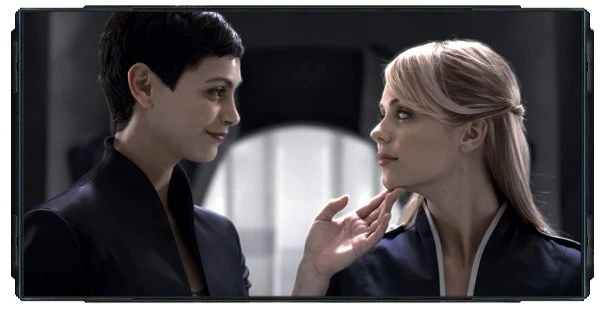
While it can certainly be read that way - and some on both sides, with agenda of their own, chose to do so - it was almost certainly intended to be a more general comment on the state of politics and the media. It was naturally associated more with Barack Obama in 2009 because at that moment his dominance of both was at its height. While it is fair to say that the Obama Campaign had been particularly notable for its constant repetition of essentially meaningless words like "hope" and "change," which is obviously referenced in 'V,' that is a technique that has also been used by many other politicians, not least by Mr Obama's immediate successor.
It is, however, possible to interpret the media's cosy relationship with the Visitors in 'V' as a more specific reference to 2009. It is certainly hard to deny that, to put it very mildly, Mr Obama always enjoyed far greater deference from most of the media - with a few obvious exceptions like Fox News - than either his immediate successor or his immediate predecessor.
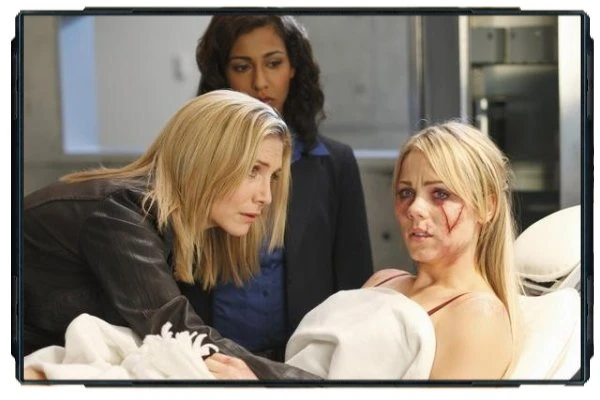
It could also be argued that "the bliss" is a reference to Mr Obama's ability to soothe the masses with his hypnotic oratory - again, an unusual gift among recent American Presidents - but that would be stretching it a bit.
Either way, it is very unlikely that the application of any satire to the Obama Administration in particular was deliberate. No one involved in the production appears to be noted for conservative or libertarian affiliations. Of course, anyone who had them might well feel it wiser to keep quiet about them in the interest of career development, given the intolerance of dissenting opinions in "the industry," but, for the same reason, it is difficult to see how a definite satire on Hollywood's favourite President would have got through the system even if it had been written. Since money always has the final word, it is occasionally possible to get a project made that does not toe the line, but only when it is championed by a major player with proven commercial power, like Michael Bay with The Last Shipand Kelsey Grammer with Boss.

Yet the very fact that this can be discussed shows that 'V' was, whatever else, a show of greater than average intellectual sophistication. It also engaged with issues of family, faith, and the nature of the soul, while maintaining a high level of excitement. It was well paced, it understood suspense, it was full of twists and turns, and a high body count made the audience feel that no character was entirely safe.
All these strengths came together explosively in a thrilling season two finale that left viewers eager for more ...at which point the show was promptly cancelled.

Although it was a respected show, it never really established itself as a "cult" show or a great ratings success. It is difficult to say why, but the fact remains. Elizabeth Mitchell is an accomplished actress with a good screen presence, as she demonstrated again recently in The Expanse. However, two attempts to build a science fiction franchise around her, V and Revolution, both fizzled. Lucy Lawless, Sarah Michelle Gellar, and Jennifer Garner proved that it possible to build a show around a strong female leading character, but also showed how it is necessary to bring something extraordinary to the role. Elizabeth Mitchell played Erica Evans as written with her customary professionalism. It was simply not enough to attract the viewers.
They missed a treat, because the new 'V' was a superior show - a classy show and an entertaining show at the same time - that could have gone in a lot of interesting directions and deserved more time than it got.
Seen this show? How do you rate it?
Seen this show? How do you rate it?
Published on May 25th, 2020. Written by John Winterson Richards for Television Heaven.


